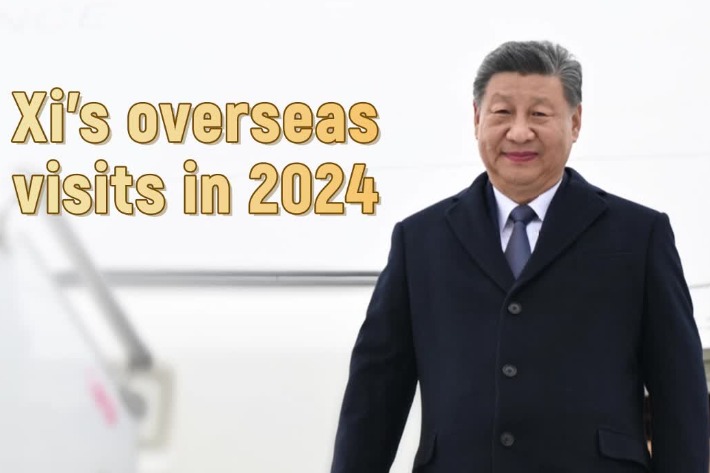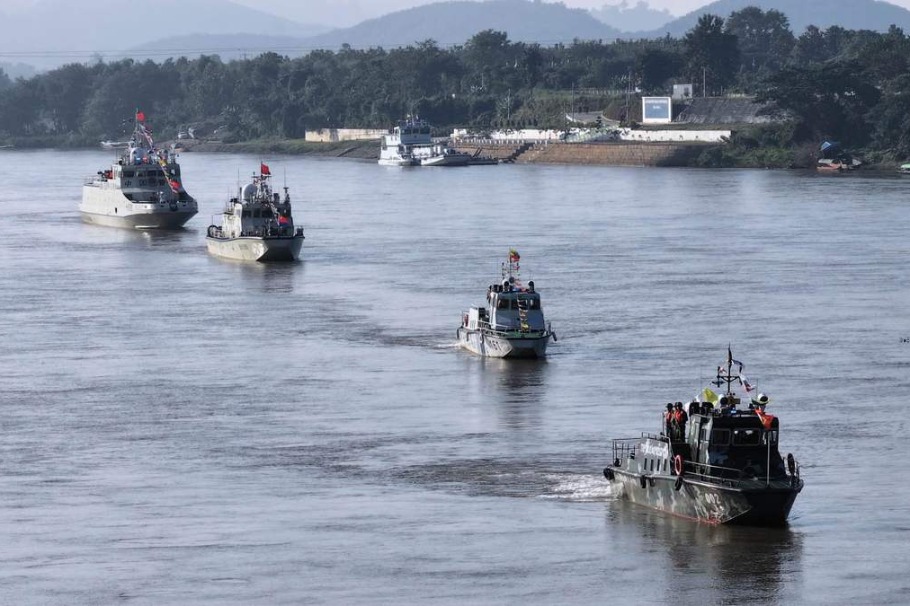Manila likely to be hung out to dry unless it provides Washington with pound of flesh: China Daily editorial

That outgoing US Secretary of State Antony Blinken wrapped up his last tour to the Asia-Pacific region with a back-to-back visit to the Republic of Korea and Japan, skipping the Philippines, might explain the tranquility in the South China Sea these days, however temporary it may be.
The ROK and Japan's honeymoon with the Joe Biden administration climaxed during a trilateral summit in Camp David in August 2023. And the Philippines also enjoyed such a highlight moment when a similar summit was held in Washington attended by the Philippine leader along with his US and Japanese counterparts in April.
So, with the Philippines being the only country among the three close US allies in the region that has not seen a recent change in its leadership, that the Biden administration still chose to omit the Philippines in the itinerary of its top diplomat's farewell visit to the Asia-Pacific must have rubbed insult into Manila's wound.
It highlights the Philippines' expendable position in the US' alliance network in the Asia-Pacific region. When the US evaluates the importance of its allies, which are classified into different classes, priority is given to those that share its "values", boast economic and high-tech prowess, and occupy strategic geopolitical positions.
The only value the Philippines has to the US lies in its geographical location overlooking the South China Sea and the waters south to China's Taiwan island. And that value naturally disappears when the Sino-US relationship is thriving.
So the quietness in the South China Sea, to some extent, reflects the Ferdinand Marcos Jr government's awakening to the bitter fact that despite the Philippines' selfless sacrifice to avail the US advancing its anti-China strategy on its doorstep — both the ROK and Japan have kept a more pragmatic China policy than the Philippines — it is a deserted piece.
Some Western media outlets recently reported that Chinese State-backed hackers hacked into Philippine government departments and stole sensitive data as part of a yearslong operation. This is a total lie fabricated just to goad the near-hibernating Marcos government to carry on its fool's errand.
As the Chinese embassy in the Philippines said in a statement in response to the reports, which link the "hacking" with the South China Sea issue and expose the external assistance available to Manila to that end,"Who is the mastermind behind this farce and who is using cyber issues to stir up regional tensions and seek geopolitical gains? The answer is self-evident."
At the same time, some US think tanks have sought to spur the Marcos government to keep on its momentum to continuously provoke China in the South China Sea.
Raymond Powell, the director of SeaLight, a project of Stanford University's Gordian Knot Center for National Security Innovation, suggested the Philippine military invite its US counterpart to undertake humanitarian operations in the disputed waters, or a Philippine company partner with a US company for oil exploration, to increase the pressure on Beijing.
Powell's suggestions expose the US side's disappointment with Manila's failure to provoke China to take tough measures against it, if not the success of Beijing's South China Sea policy that prioritizes dialogue to resolve differences.
China, as well as other regional countries, have been well aware that it will only be a matter of time before Manila has to accept it is being caught in a dilemma of its own making on the South China Sea issue. That explains Beijing's restraint and the cold shoulders the other Southeast Asian countries have given to Manila's invitation for them to join it in playing the US' Asia-Pacific game.
Given the in-your-face "America first" stance the incoming US leader displayed in a pre-inauguration news conference on Tuesday, it should not be beyond expectation that the Marcos government will be pressed to pay for the privilege of being the US' pawn.
Manila has never been in a position to ask what the US can do for the Philippines, it has always been in the position of asking what the Philippines can do for the US.
If it hopes that it will get some quid for its quo from the new US administration, it is set to be disappointed. There will be a steep demand for quo even for the slightest quid.


































